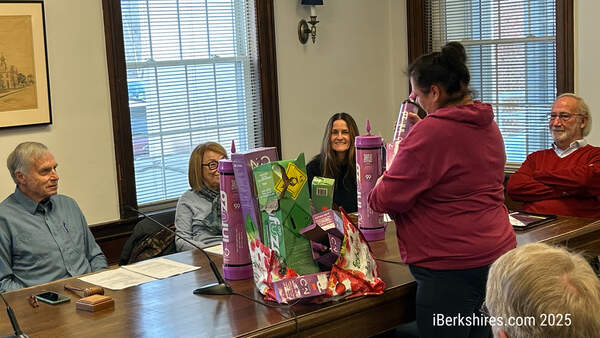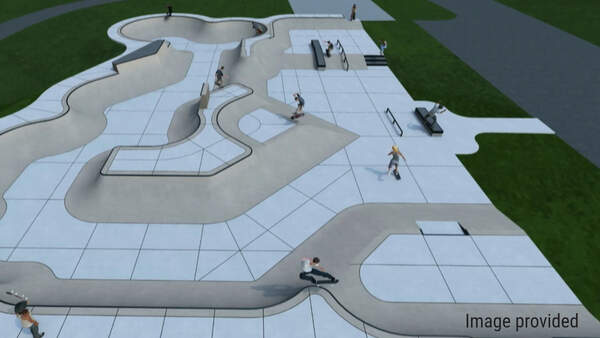Peter Schjeldahl Awarded 2008 Clark Prize For Excellence In Arts Writing
WILLIAMSTOWN - The Sterling and Francine Clark Art Institute today announced that Peter Schjeldahl will receive the 2008 Clark Prize for Excellence in Arts Writing. Established in 2006, the Clark Prize recognizes those writers whose work advances the public understanding and appreciation of the world of visual art in a way that is grounded in scholarship yet appeals to a broad range of audiences.The prize will be awarded to Schjeldahl at a ceremony to be held in New York City in September 2008. The Clark Prize is accompanied by a $25,000 honorarium and an award designed by architect Tadao Ando, who is leading the Clark's campus expansion project. The prize is funded by the Beinecke Family through the Prospect Hill Foundation.
The Clark Prize celebrates excellence in arts writing that conveys complex ideas in a manner that is informed, insightful, and accessible. In creating this award, the Clark is helping to raise awareness of the importance of writing that bridges scholarly and popular interest in the arts and seeks to encourage support for this type of writing among publishers, editors, and the public. The Clark Prize also recognizes individuals whose critical or art historical writing has had a significant impact on public appreciation of the visual arts. The evaluation of the nominees is based on a body of work. Individuals engaged in all forms of arts writing, including criticism, commentary, monographs, catalogue essays, and biography, are eligible.
"The prize is a natural extension of the Clark's dual mission of advancing scholarship while building public appreciation of art," said Michael Conforti, director of the Clark. "We are delighted to honor Peter Schjeldahl whose work so perfectly embodies the goals of the prize. His insightful, fluid, and concise writing has increased the general public's interest in art as it has contributed to our collective critical understanding of sometimes difficult and challenging work."
Peter Schjeldahl
Peter Schjeldahl has been the art critic of The New Yorker since 1998. Prior to that he was a regular art critic for The Sunday New York Times, The Village Voice, ARTnews and 7 Days. Let's See: Writings on Art from The New Yorker will be published by Thames & Hudson in May, 2008. Early books of criticism include The Hydrogen Jukebox: Selected Writings, 1991, University of California Press. Schjeldahl also published five books of poetry between 1967 and 1981. He has taught at Harvard University and has received a Guggenheim fellowship and the Frank Jewett Mather Award for excellence in art criticism from the College Art Association.
Schjeldahl was selected by a three-member jury:
* Andrew Brown, Director of Visual Arts Strategy, Arts Council of England
* Thomas Crow, Professor of Modern Art, Institute of Fine Arts, New York University
* Thelma Golden, Director and Chief Curator, The Studio Museum in Harlem
Members of the jury were chosen for their long-standing commitment to the arts and their expertise in the field. Conforti chaired the panel of jurors in a non-voting capacity. The jurors served as both nominators and judges of the recipients.
Previous Recipients
The inaugural prize in 2006 was awarded to three individuals: Kobena Mercer, Linda Nochlin, and Calvin Tomkins. Following its first presentation, the Clark Prize is awarded every two years to one recipient.
About the Clark
Set amid 140 acres in the Berkshire hills of western Massachusetts, the Clark is an art museum and a center for research and higher education, dedicated to advancing and extending the public understanding of art. To further its dual mission, the Clark organizes groundbreaking special exhibitions that advance scholarship while building public appreciation of art.
The Clark's research and academic programs include an international fellowship program and regular conferences, symposia, and colloquia, drawing together arts leadership from around the world. The Clark encompasses one of the most comprehensive art history libraries in the world and, together with Williams College, jointly sponsors one of the nation's leading master's programs in art history.
In June, the Clark will open Stone Hill Center, the first phase of its expansion and campus enhancement project. Designed by Pritzker Prize-winning architect Tadao Ando, the wood and glass 32,000-square-foot building will house intimately scaled galleries, a meeting and studio art classroom, an outdoor café, and the Williamstown Art Conservation Center (WACC). The second phase of the Clark's expansion and institutional enhancement program includes the creation of another new, stand-alone building designed by Ando that will house special exhibition galleries, visitor orientation services, and education and conference spaces. Scheduled for completion in 2013, Phase II also encompasses the upgrade and internal expansion of the Clark's current buildings by Annabelle Selldorf.
For more information, visit www.clarkart.edu or call 413-458-2303.















